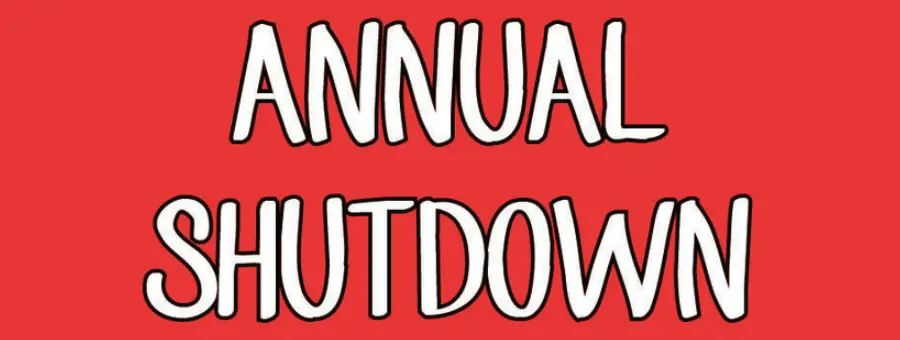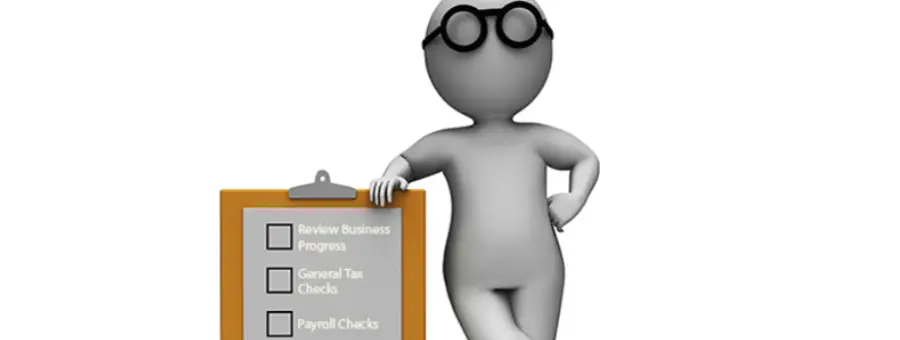
This is the follow-on from the Annual Shutdown Guide Part 1
The time of the annual shut-down for each business is arriving quickly as Christmas is now only a matter of a few short weeks away. There is still much to get done before then.
In this part of the Annual Shut-Down Guide we will be covering:
- Bonus payments
- Gifts & Xmas Parties / FBT
- Annual shut-down Checklist
Be sure to use the checklist at the end of this article and the house-keeping section from Part 1 to help you be well prepared for the “silly” season.
Christmas Bonus Payments
It is not uncommon for bonuses to be paid to employees around Christmas time. This reflects the end of a quarter or the end of the year period that is to be the basis of the bonus. This means that the performance bonus can cover the year or the quarter and in some circumstances the month.
If the bonus is paid once throughout the financial year, this is termed a “one-off” bonus and this will only be taxed within the year that it is paid.
Bonuses are often based on performance, however, and can vary in terms of commission or salary. This will depend on the specific role of the employee and the industry award that the role and business pertain to.
Note: a bonus payment is distinct from a back payment, which relates to wages that should have been paid in a prior fiscal year. Back payments are treated differently and are based on the time frame and the amount of back payment; this governs whether the amount is included in Lump Sum E or Gross Payments.
Taxing a Christmas Bonus
When paying commission, bonus or a similar type of payment that covers less than twelve months, the ATO’s Schedule 5 – Method A uses the number of pays that the payment relates to, which can be over 52 weeks or over 12 weeks depending on the type of payment.
For example; a Christmas bonus covers the whole year, therefore, apportion over 52.
Here is a step-by-step instruction on how to calculate this:
- Calculate the employee’s gross earnings excluding any additional payments for the current pay period. Round this amount omitting the cents.
- Use the appropriate tax table to confirm the amount of tax that is to be withheld from your employee’s gross earnings in step 1.
- Add any additional payments to be made in the current pay period together and divide the total by the number of pay periods in the financial year (i.e. 52 weekly pay periods, 26 fortnightly pay periods or 12 monthly pay periods).
- Add the amount at step 3 to the gross earnings at step 1.
- Use the appropriate tax table confirm the amount of tax that is to be withheld from the amount at step 4.
- Subtract the amount at step 2 from the amount at step 5.
- Multiply the amount at step 6 by the number of pay periods used in step 3.
- Multiply the additional payment being made in the current pay period by 47%.
- Use the lesser amount of step 7 and step 8 for the withholding on the additional payment.
- Calculate the total PAYG withholding for the current pay period by adding the withholding on the additional payment (step 9) to the withholding on the gross earnings (step 2).
Example: Tax Method A as per ATO Schedule 5 – Method A

When it comes to salary sacrificing a bonus payment, this can only be undertaken if there was a written arrangement already in place prior to the bonus coming into effect. Otherwise, it must be treated as wages and cannot be sacrificed.
Christmas Parties and FBT
The treatment of FBT comes into effect when the cost of $300 has been reached and/or exceeded. This is in conjunction with any are other conditions that meet and pertain to FBT.
The cost of providing a Christmas party is income tax deductible to the extent that it is subject to FBT. Therefore, any costs that are exempt from FBT cannot be claimed as an income tax deduction. GST credits can only be claimed to the extent that a cost is tax deductible. Therefore, if you cannot claim it as a deduction, you cannot claim the GST credits either.
The provision of a Christmas party for an employee may be a minor benefit and exempt from FBT if the cost of the party is less than $300 per employee and certain conditions are met. This provision also applies to the employee’s associate (family member) or spouse.
The ATO have guidelines in regards to FBT as it relates to different business structures. Speak with the Tax Agent or refer to the links below for more assistance.

Not Subject to FBT
- Salary and wages
- Acquisition of shares under employee approved scheme
- Superannuation employer contributions
- Termination payments that include a company car given or sold
- Certain benefits provided by religious institutions to their religious practitioners
Exempt from FBT
- Minor benefits <$300
- Portable electronic device
- Computer software
- Protective clothing
- Briefcase
- Tool of trade
What is Subject to FBT – Refer to your registered tax agent
Gifts and FBT
A gift that is provided to an employee that is below and/or up to $300 is considered a minor benefit and is to be treated separate from the Christmas party. These are two individual transactions and this relates to any gift provided to an employee during the year, not just during the Christmas season.
Common gifts can include vouchers, gift cards and so forth.
From a bookkeeping perspective it is treated as follows:
- The gift is less than $300. This makes the gift a tax deduction and GST credits can be claimed.
- When the gift is above $300, it is possible that FBT will apply to those that receive the gift; i.e. the employee. This is the tax-deductible part that is not subject to FBT.
Gifts such as a holiday, membership to a club, or tickets to a theatre, sporting or musical event are considered to be entertainment.
- For minor benefits, under $300, the gift is not tax deductible and no FBT applies.
- For employees given a gift over $300, the gift is tax deductible but it is also subject to FBT
Gifts to Suppliers, such as wine, food, hampers, vouchers, etc., are not considered to be entertainment.
- Non-entertainment gifts to clients or suppliers are deductible and GST is claimable, no FBT implications.
Gifts such as a holiday, membership to a club, or tickets to a theatre, sporting or musical event are considered to be entertainment.
- For clients and suppliers, the entertainment gift is not tax-deductible,
- no FBT applies and no GST is claimable.
- If the gift is a minor benefit (i.e., less than $300 value), then the gift is tax deductible, and therefore GST is claimable for gifts to employees and their family members, clients and suppliers. No FBT applies to gifts of less than $300.
- For gifts over $300, FBT may apply for employees and their family members,
- but FBT does not apply to clients or suppliers.
- Gifts such as a holiday, membership to a club, or tickets to a theatre, sporting or musical event are considered to be entertainment.
- For minor benefits, as above, the gift is not tax deductible and no FBT applies. Also for clients and suppliers, the entertainment gift is not tax deductible, and no FBT applies.
- For employees this is not a minor benefit, the gift is tax deductible but it is also subject to FBT.
Refer to your Registered tax agent for further elaboration.
Providing gifts to clients during the Christmas period is a personal preference which is at the discretion of the business. In some industries, clients may not be permitted to accept gifts so it is best to check this first.
The treatment of gifts – whether to employees or clients, business parties where employees are in attendance can be complex, and while the basis of FBT is straightforward, there can be variables which come into effect due to the industry, the conditions of the gifts or the event, as well as the amount that has been spent.
It is good practice to check available resources or speak with your tax agent if you are uncertain.
Annual Shut-Down Checklist
A great way to think of an Annual Shut-down is like that of an end of month procedure.
The thing to keep in mind is the variables:
- Leave calculation and leave loading
- Bonus or commission payments
- Expenses for the Christmas party or gifts to staff, and whether there are FBT implications
- The duration of the shutdown, to when the office is reopening, and how this impacts on the pay run, supplier payments and compliance obligations.

References
Previous Newsletter Articles
Business Tips
HR Information
Contact Us
1300 022 270
enquiries@myabbs.com.au






